A decade of empowering women at the edges
Women at the edges in Latin America – more than 1,600 of them – are working together to bring change in Jesus’ name.
Photo: Indigenous women enrol as members of AMARE in northern Argentina
Celebrate the 10-year anniversary of AMARE with Catherine Le Tissier, who was there from the beginning.
What began with a handful of women in Northern Argentina in 2014 has grown into a movement of more than 1,640 women from all of the people groups not only in the Diocese of Northern Argentina but also across Argentina, Bolivia, Uruguay and Peru (where it is called AMA).
by Catherine Le Tissier, former mission partner in northern Argentina
A cry for help
The movement began with a cry for help from praying Wichì (indigenous) women looking to the church for practical help for their families.
These indigenous communities, who lived so well in the forest, were thrust into modern life with all its new technology.
Traditional skills were lost and parents felt powerless as they saw their way of life eroding.
Although they benefitted from essentials such as schools and hospitals, parents felt the pressure from the increase of Western influences as they were ill-equipped to guide their children in interacting with unfamiliar culture and technology.
Traditional skills were lost and parents felt powerless as they saw their way of life eroding.
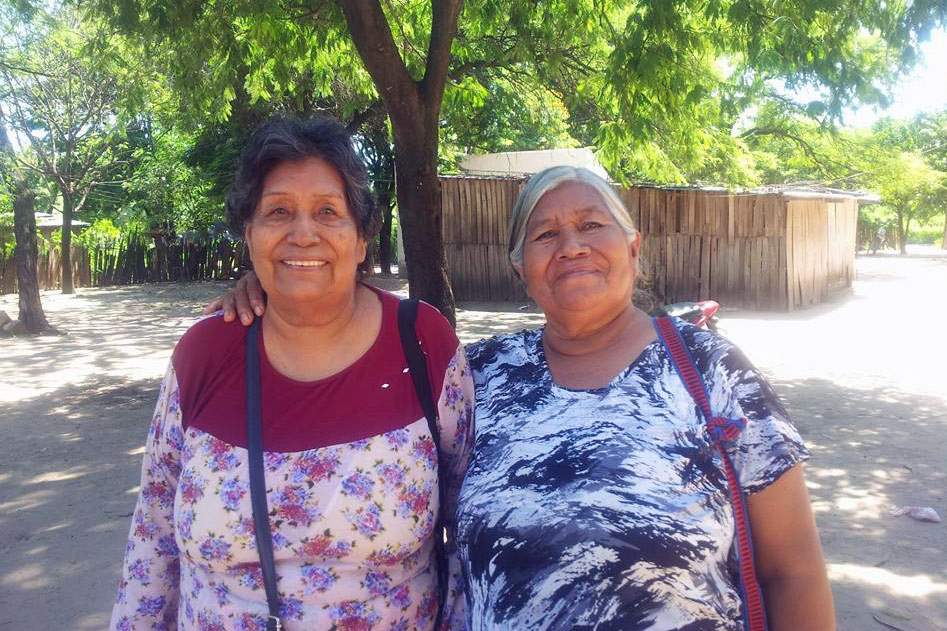
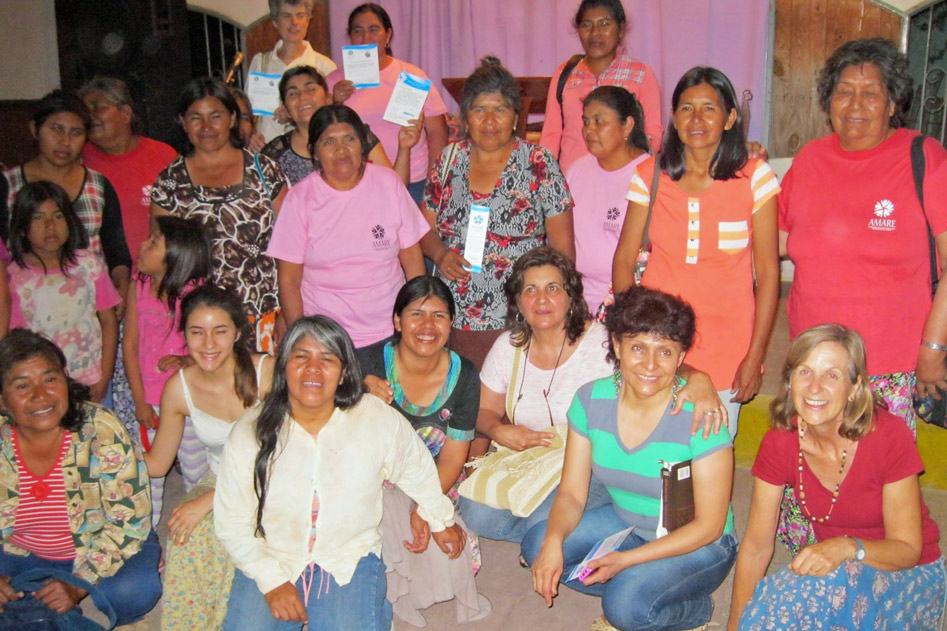
This sparked the vision of one Wichì woman, Isabel Vilte, who worked with a team of Wichì, Toba and Criolla (white settler) women, alongside (now retired) CMS mission partners Catherine Le Tissier and Shelley Stokes, to bring women together.
From MU to AMARE
The idea of a women’s group focused on the family was not totally new – some older women remembered the Mothers’ Union, which had been introduced to northern Argentina some 80 years previously but had sadly declined.
The message was simple, but so powerful and practical, and God’s Spirit moved!
A new “shape” was needed so, encouraged by the worldwide Mothers’ Union, AMARE was formed as an affiliated group.
AMARE seeks to teach Christian basics, gather women and affirm that they are loved, forgiven by God and so precious!
To many women, who often felt invisible culturally, this basic principle was really important.
AMARE encouraged them to know that their love and work are important and so to find new ways to serve God.
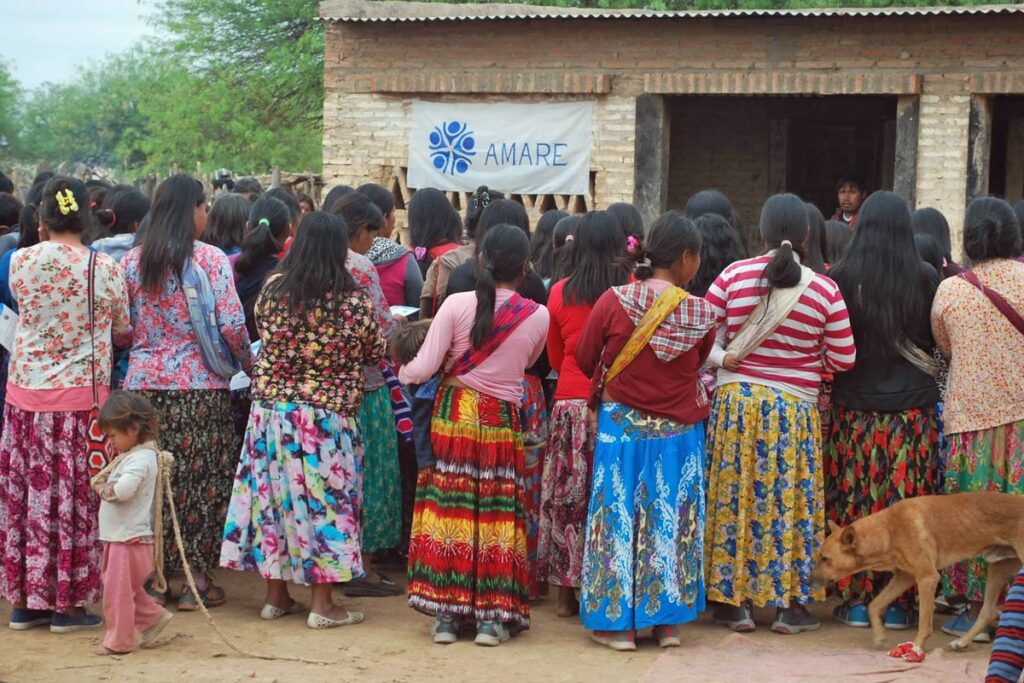
Early growth
In the early days of AMARE there was huge growth (numerically and geographically), especially among the indigenous communities. Many women heard teaching and soon wanted to become members.
We soon saw how the teaching on love and forgiveness would lead to reconciliation, sometimes of individuals and sometimes of whole families!
AMARE was not just another women’s group – it was a way of life
We spent many an hour sitting quietly while Isabel and other leaders listened and encouraged women to sort out their differences and find a way to love and forgive.
It spread to urban centres too – and some members of the church in Buenos Aires even came to the north and caught the vision!
The message was simple, but so powerful and practical, and God’s Spirit moved!
AMARE was not just another women’s group – it was a way of life, and on receiving membership every woman would promise “to love God, and my neighbour, to serve him in my family, in the church and in the community”.
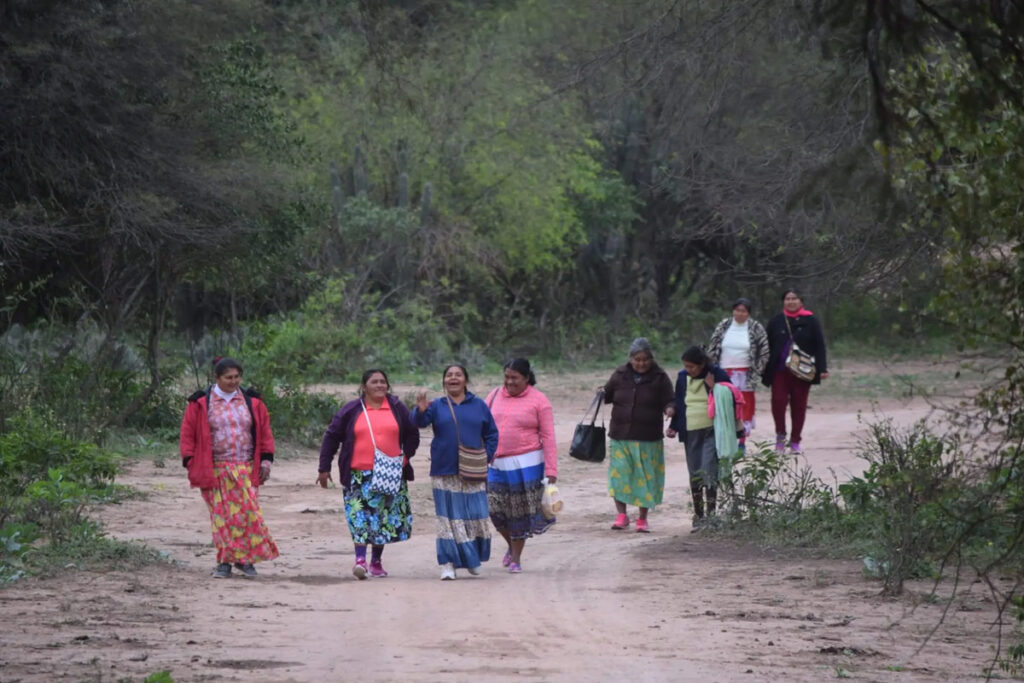
Getting organised
As the movement grew, so did the need to establish the organisation, so in 2016, again with some help from Mothers’ Union, AMARE drew up its first constitution.
A General Assembly was held, supported by the bishops and the local mayor. It was quite a task finding places for everyone to sleep, and ensuring there was enough food for over 300 women, many of whom brought their families!
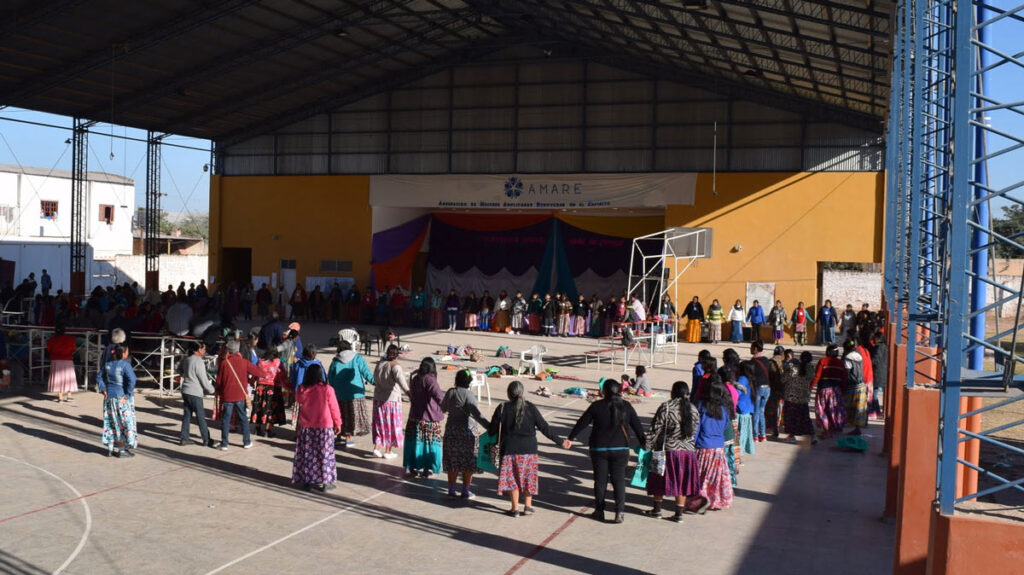
Workshops during the weekend covered issues such as Bible study, gender-based violence, administration and the family. The first executive committee was chosen, including representatives from several different ethnic groups across the diocese.
Training for family life
In 2017 and 2018 women from AMARE groups across the Province of South America were equipped to facilitate training offered by Mothers’ Union called MULOA, aiming to address the need for support in family life.
MULOA (Mothers’ Union Listen Observe Act) has had a huge impact, helping individuals and groups to listen to God and to others, to observe the needs and priorities, and to take action.
The heart of AMARE’s vision is to put love in action.
Through Bible study, dynamic games and dramatisations, the way forward becomes clear, and everyone has a lot of fun.
CMS local partner Mirna Paulo continues to use the method among the indigenous communities with huge success.
However, family needs were not all being met and there were many families in crisis. Training using a Mothers’ Union parenting programme had some success, but it didn’t flourish in our context.
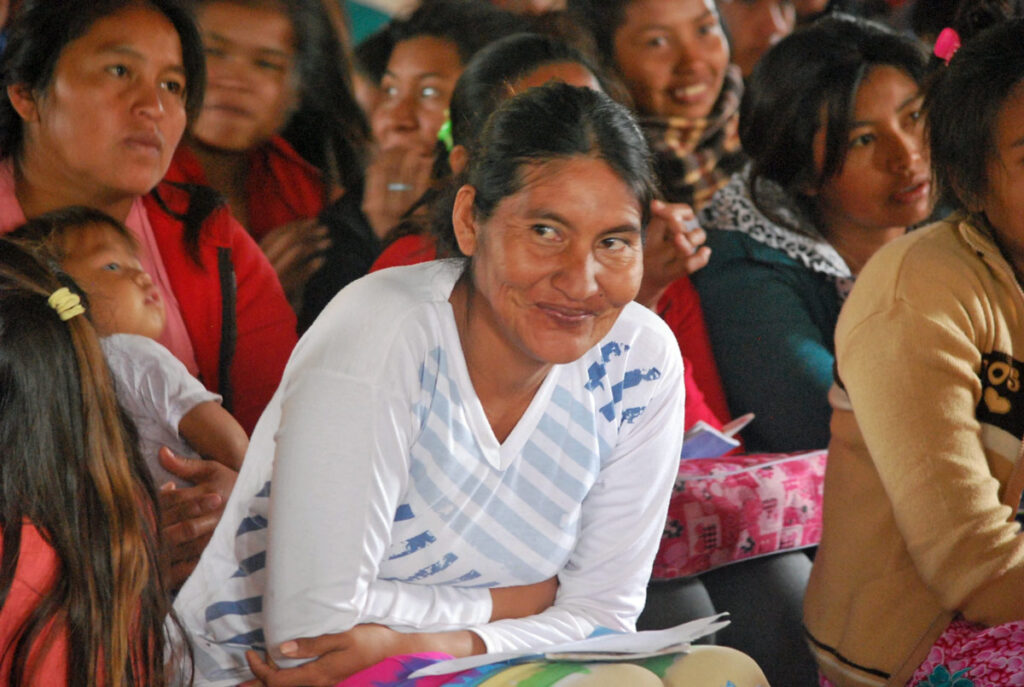
In early 2020 parenting facilitators from across the region came together to pray, evaluate the training, consider the challenges facing families and develop strategies to increase outreach.
Facilitators adapted the format to connect better – and some held a group soon after that greatly helped parents and carers.
Times of change
As 2020 progressed, suddenly everything changed with COVID-19. Prior to the pandemic, gathering in community was hugely important to AMARE.
Members undertook uncomfortable journeys, slept on church floors and accepted uncertainty around food to be together. So, with tight restrictions on movement and gathering, how could they connect?
Part of Mothers’ Union’s rhythm is a daily “wave of prayer” – every day Mothers’ Union groups are prayed for by others.
For the women of AMARE in Northern Argentina, this prompted a daily WhatsApp prayer group – with women posting and praying daily at noon. This was intended to sustain the group during the early days of the pandemic, but it continues more than three years later!
During lockdowns, some of these messages were broadcast to more remote areas via radio.
Love in action
The heart of AMARE’s vision is to put love in action. As well as supporting parents, prior to the pandemic this included praying for public organisations, such as the police during times of turmoil and launching a football team made up of young men who had been caught up in addiction.
In Ingeniero Juarez, women from AMARE were warmly welcomed by staff and patients as they visited the hospital and prayed with patients.
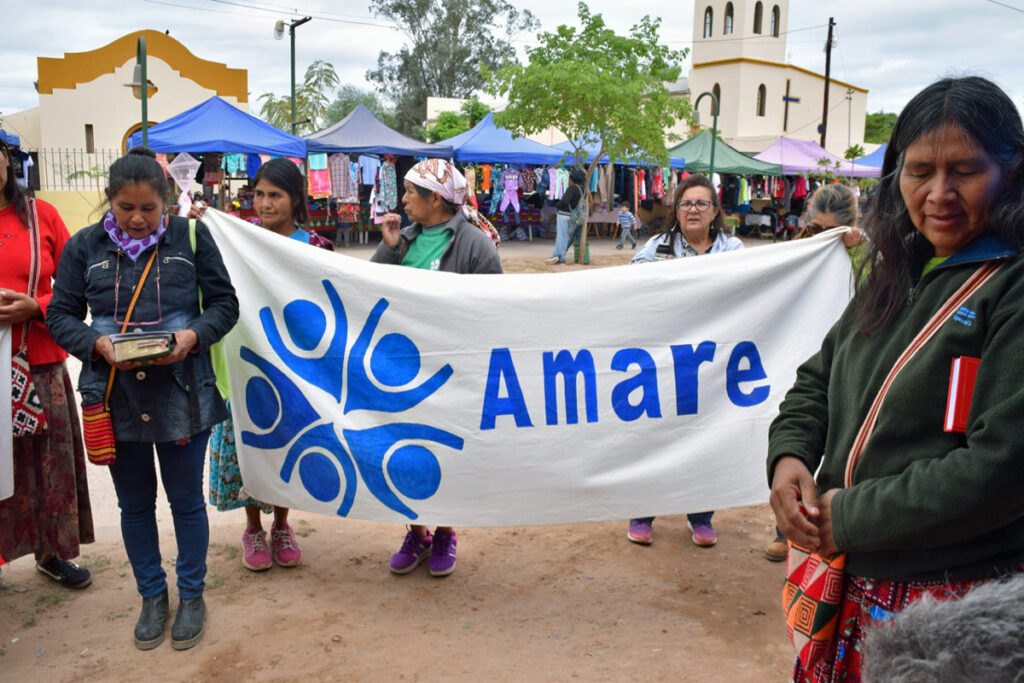
During the pandemic, the enforcement of restrictions in some areas was heavy handed. There was fear: of the virus, of the police, of being hospitalised.
In Buenos Aires, the group from San Marcos was not deterred, and formed a group of helpers from the community to reach out to struggling families from their local school. They remained strong as they met as a group online.
Joining global voices
Over the years, AMARE held General Assemblies in 2019 and 2022, and leaders were able to connect with Mothers’ Union members from around the world in Rwanda in 2019 and at the Lambeth Conference in 2022.
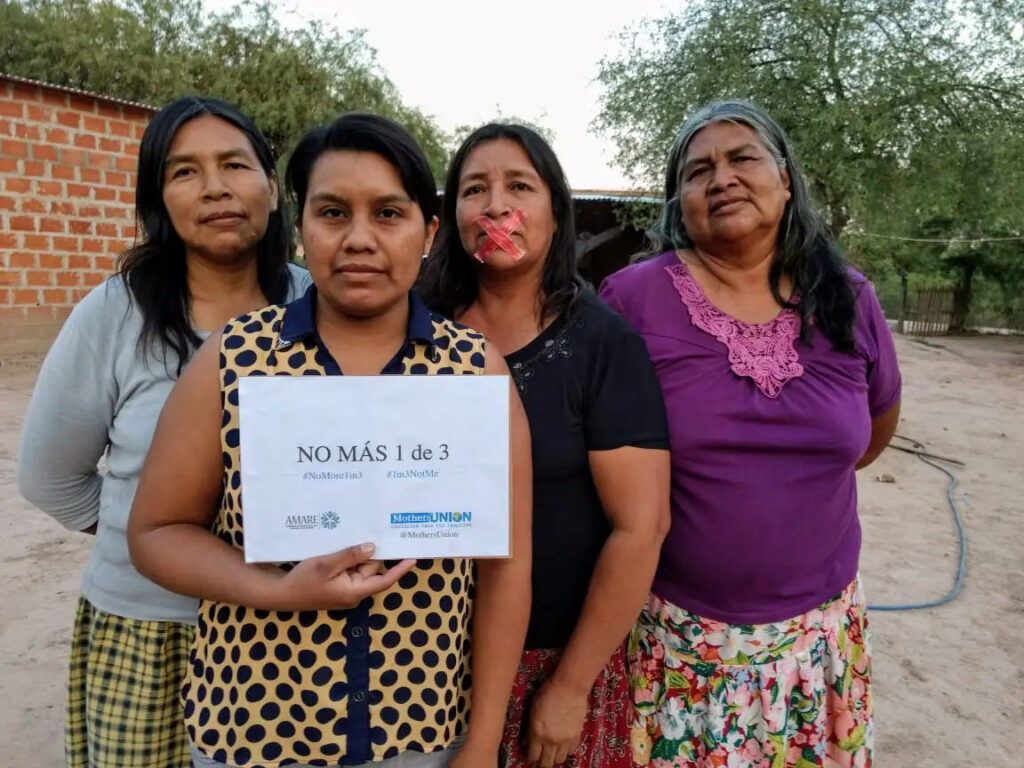
In addition to serving their own communities, the women of AMARE joined with others around the world in the Mothers’ Union “No more 1 in 3” campaign against gender-based violence. In 2020, AMARE women spoke out on social media and took part in web-based events focused on eradicating abuse and violence towards women.
Challenges and hopes
Since the pandemic, life has been restored to “normal”. Being able to be together is no long seen as a given, but something to strive for – and there have been amazing times together. AMARE continues to be supported by CMS as part of facilitating an indigenous mission group across South America.
AMARE members meet together faithfully, to pray, to love and to serve. There is still strife, apathy, bewilderment, disappointment and sadness, as in communities all over the world. Practical love is not always an easy path to tread.
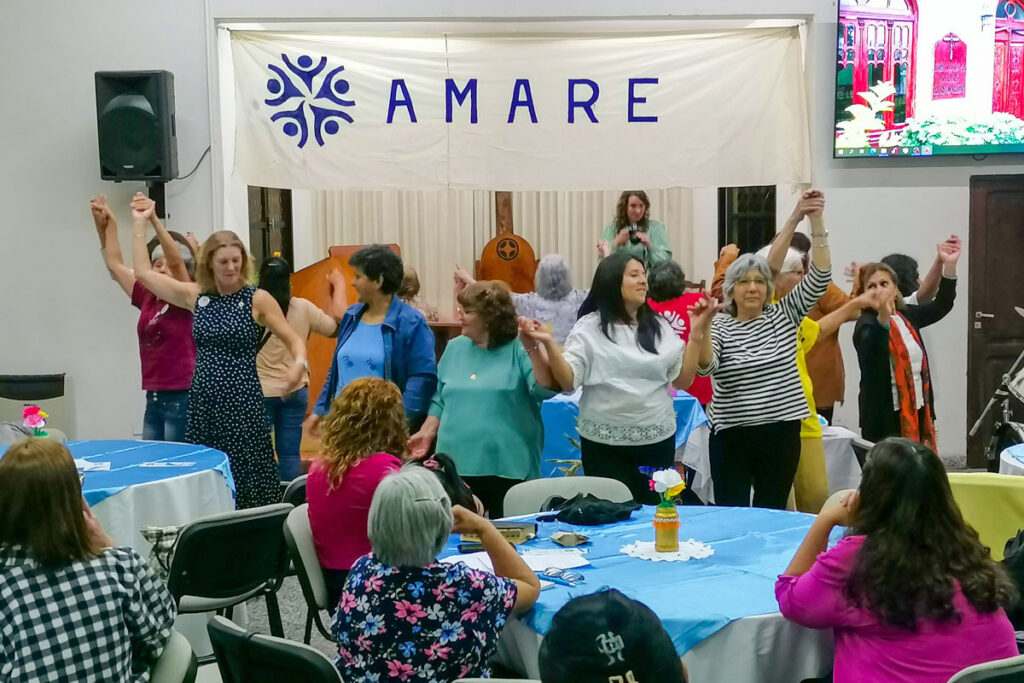
Yet there is much hope and joy. We see AMARE members taking initiative, taking time with their families, using their God-given gifts as Sunday school teachers, hospital visitors, cleaning, helping, serving.
The old gives way to the new, but we know that the Lord is the same:
“Therefore, my beloved brethren, be ye steadfast, unmovable, always abounding in the work of the Lord, for ye know that your labour is not in vain in the Lord.”
1 Corinthians 15: 58
As we look back over 10 years, AMARE has discovered many creative ways to love God and to love others, relying on the Holy Spirit to guide and empower.
It has brought some unity across culture and class, breaking stigma and prejudice, bringing hope to the downtrodden and abused, and help for families – but there continues to be much need.
Our prayer for the future is that AMARE continues to find ways to bring hope, joy and God’s transforming love to families and communities across the vast continent of South America.